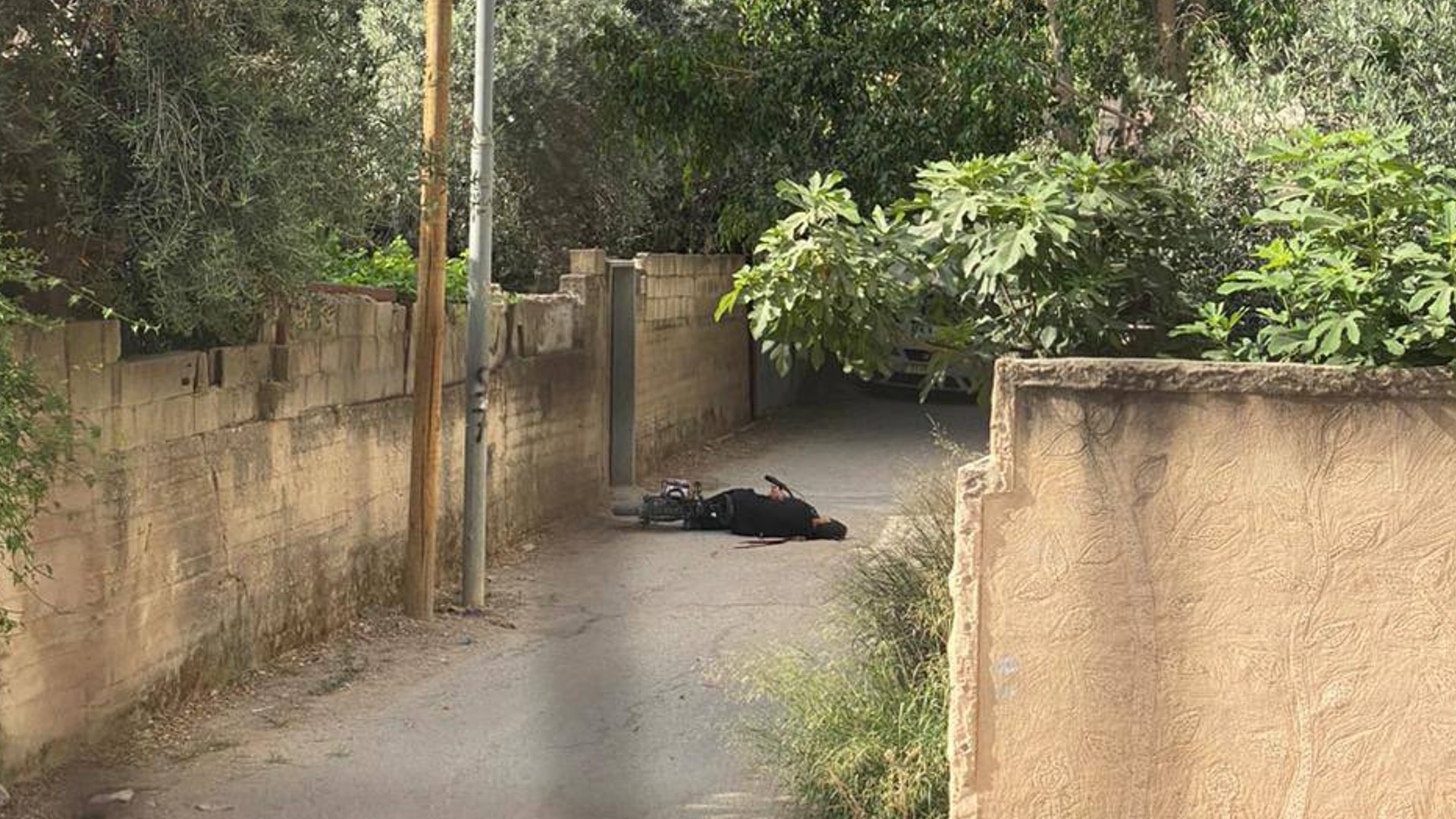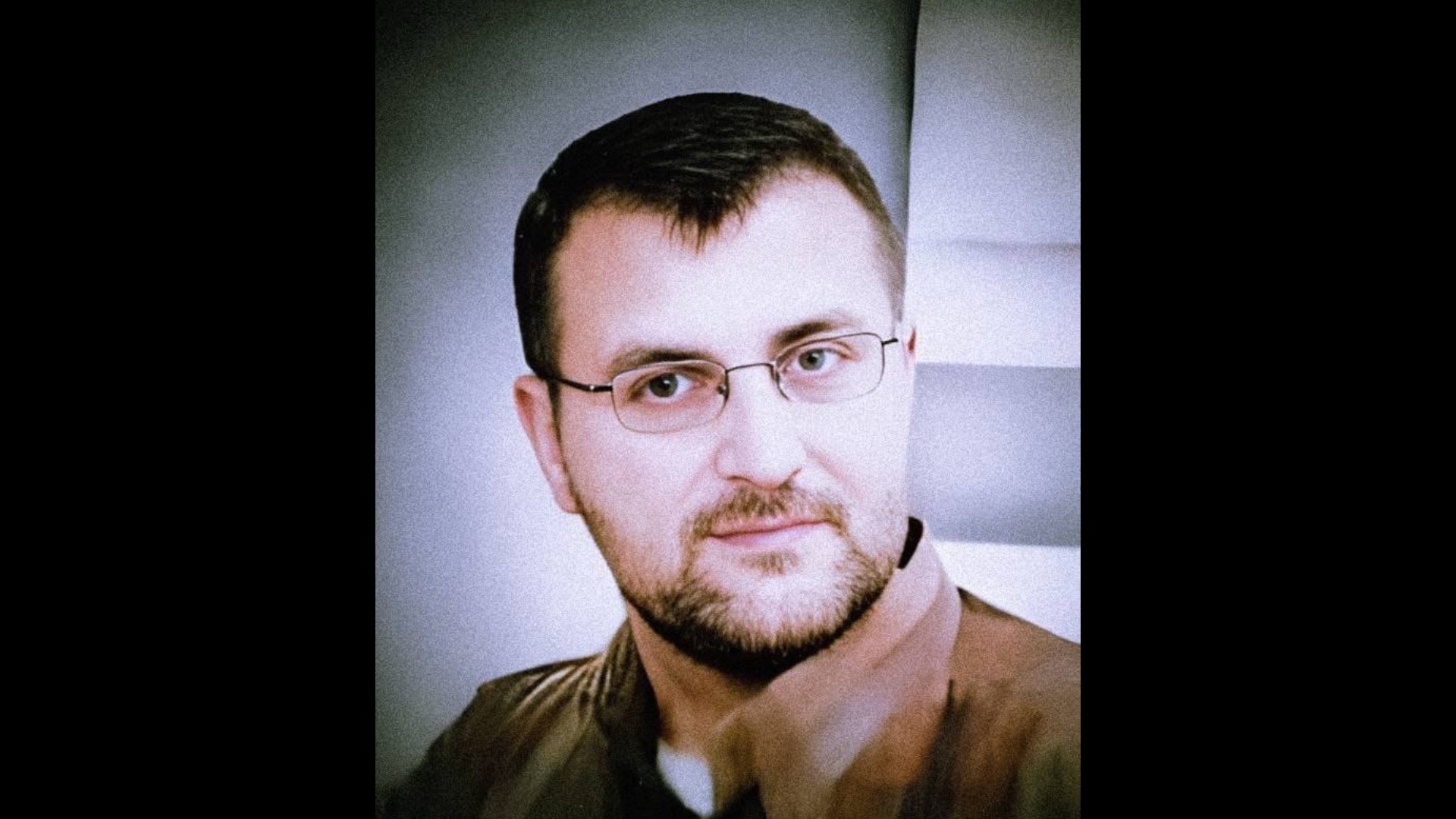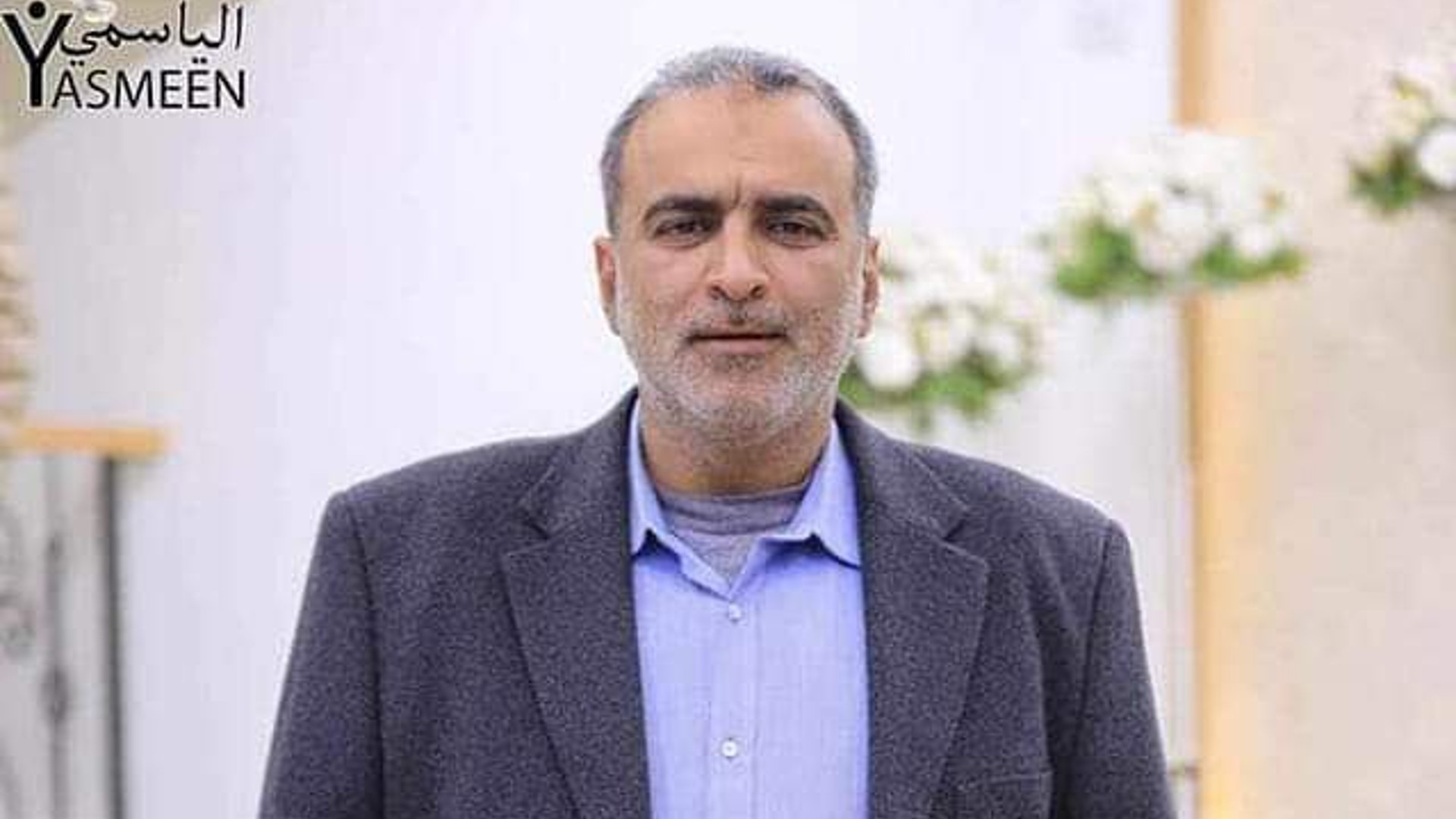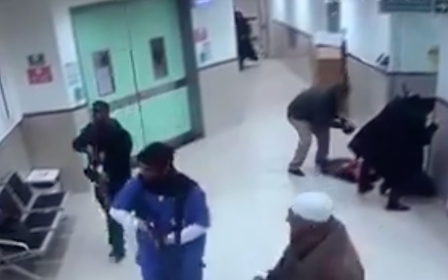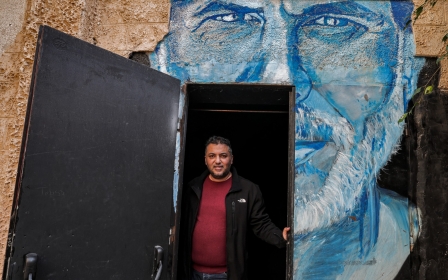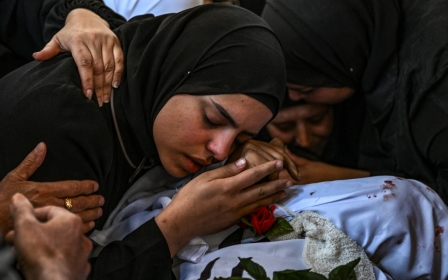Student, teacher, doctor, and a playful brother: The Palestinians Israel killed in Jenin
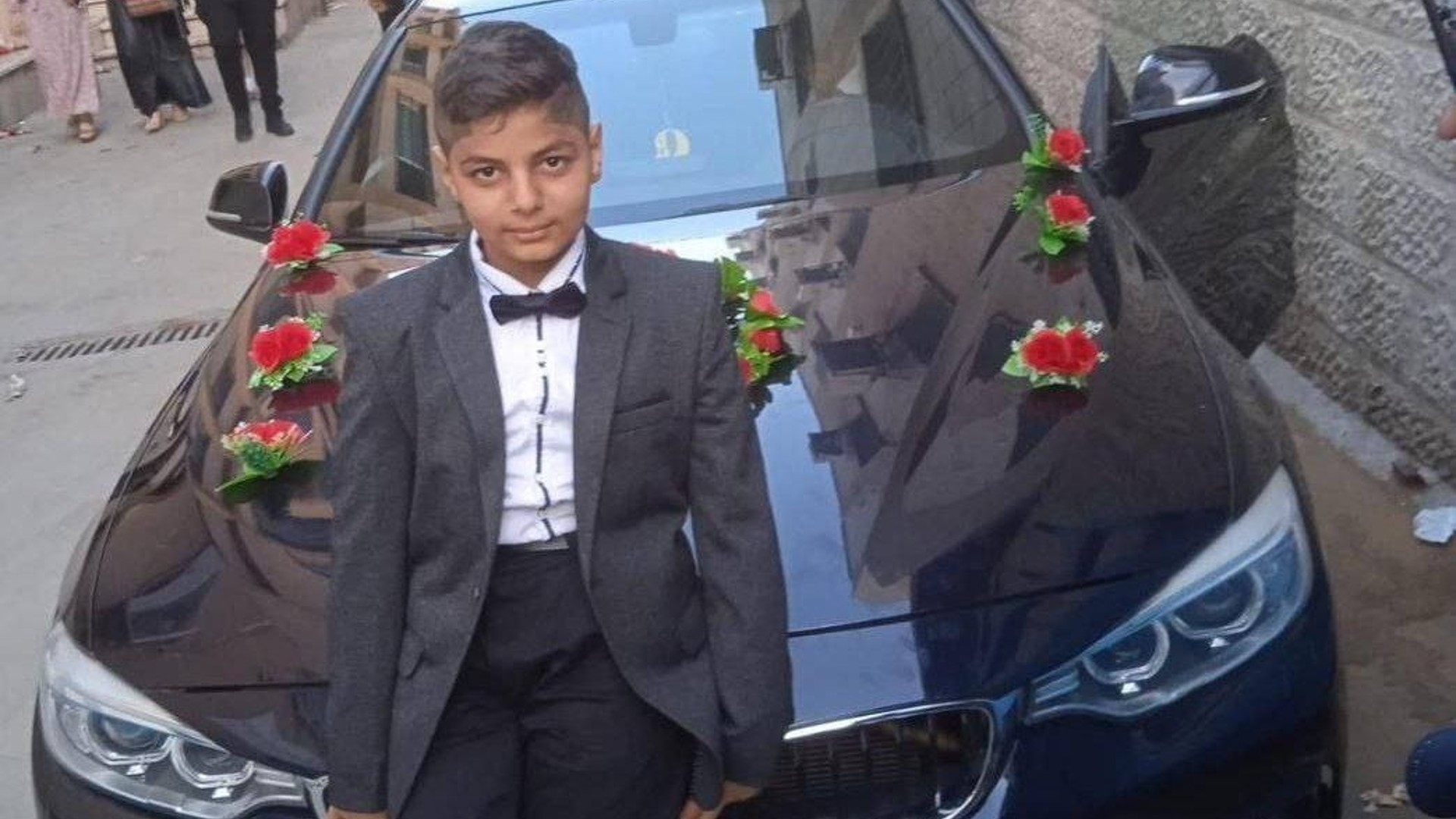
Editor's note: This article contains an image that might be distressing to some readers.
A wide-scale Israeli military assault on Jenin in the occupied West Bank entered its second day on Wednesday.
The ongoing raid started Tuesday morning, with Israeli forces shooting at moving cars and civilians in the city’s refugee camp.
Eight Palestinians were killed by Israeli fire in the first 24 hours, with 24 more people wounded and many others detained.
Israeli armoured vehicles and bulldozers demolished homes, shops and roads in the assault, as clashes with local fighters continued.
New MEE newsletter: Jerusalem Dispatch
Sign up to get the latest insights and analysis on Israel-Palestine, alongside Turkey Unpacked and other MEE newsletters
Middle East Eye breaks down the stories of four people killed in the ongoing attack: a quiet student, a beloved teacher, a skilled doctor, and a teenager working to support his family.
A quiet student
One of the first who was announced killed was Mahmoud Hamadna, a ninth-grade student at al-Karama Basic School for Boys
The 15-year-old was shot dead after heading to the school to take a final exam with his twin brother, Ahmed Hamadna.
When news of the raid emerged at around 8am local time, their father, Amjad Hamadna, feared for their safety.
He called them immediately but the pair assured him they had arrived at school safely.
Minutes later, Ahmed called again, telling his father the principal had cancelled school for the day and that he decided to stay in his aunt’s house until the raid was over.
Mahmoud, however, decided to return home on his electric bike, he said.
Amjad then tried Mahmoud’s cell several times, but his calls went unanswered.
Finally, someone picked up, but it was a doctor from Jenin Governmental hospital, telling him Mahmoud had been shot and wounded.
Amjad rushed to the hospital only to find out his son had died from his wounds, caused by five explosive bullets - one in the head, one in the heart and the rest in his abdomen.
“Mahmoud and his friend were in an alleyway close to his school trying to hide from Israeli bullets but a sniper opened fire on them, wounding Mahmoud and his friend in the shoulder and leg,” Amjad told MEE.
“They remained bleeding for more than half an hour and no one knew they were there, and when they found them, Mahmoud was dead,” he added.
Remembering Mahmoud’s final days, Amjad was visibly sad.
He said Mahmoud was a special and quiet boy who always listened to his father and was his “right hand”.
At home, he would help his mother with housework and did his schoolwork diligently.
“The last time I saw him was the night before he was martyred,” Amjad recalled.
“We had dinner together, played and laughed like every day. Then I kissed them goodnight and wished them success in the final exam,” he added.
The family has not yet been able to bury Mahmoud or hold his funeral due to the ongoing Israeli raid.
They have also not been able to return to their home due to the active Israeli military presence there.
According to Amjad, Mahmoud and his twin brother Ahmed would often visit the local cemetery and place flowers on the graves of those killed by Israeli forces in recent raids.
He didn’t realise that Mahmoud would one day be one of them.
"I still don't understand what happened. Every now and then I think that I [will] return home and find him there playing on his computer, as he used to.
“I can’t comprehend that he is gone.”
Beloved teacher
Another boys' school in Jenin was rocked by a tragic death in the ongoing Israeli raid, this time concerning a beloved teacher.
Allam Jaradat, 48, hailed from the town of Silat al-Harithiya, west of Jenin.
On Tuesday morning, he was on his way to Walid Abu Muwais Basic School for Boys, where he was a technology teacher for several years.
His brother, Muhammad Jaradat, told MEE that Allam was riding in the backseat of his colleague’s car when Israeli special forces stormed the vicinity of the Jenin refugee camp.
When the vehicle reached an area near the school called al-Saouha, the soldiers began opening fire on it without any justification.
“Allam received a bullet in the back of the head, and he continued to bleed before the ambulance crews were able to transfer him to al-Razi hospital, close to where I live,” Muhammad said.
“I went to the hospital and the doctor told me he was brain-dead before announcing half an hour later that he had died.”
Another teacher, who sat next to Allam, had leg injuries from the indiscriminate shooting.
Jaradat was a father of two children aged 14 and 10. According to Muhammad, he had a special relationship with them and would do everything for them.
The same was true for his relationship with his students.
He was loved at school and was dedicated to his work and everyone respected him, Muhammad said.
This was evident by the large attendance at his funeral from students, teachers and their families.
In 1999, Allam graduated with a degree in economics from An-Najah National University in Nablus.
He had worked as a teacher in several schools in Jenin and in each one he gained the respect of his colleagues and students, Muhammad said.
In 2006, he worked for a year at his local municipality.
“He ran for the presidency of Silat al-Harithiya municipality and received the most votes, even though he was the youngest of the candidates,” said Muhammad.
“This was because he respected everyone and loved them.”
Calming doctor
Much like Jaradat, Dr Osaid Kamal Jabarin, 51, was heading to work on Tuesday morning before an Israeli soldier fatally shot him.
The surgeon parked his car outside the Jenin Governmental hospital, where he was headed to perform surgery on a patient, according to his uncle Kamel Jabarin.
Walking from the car park, which is located some 100 metres away from the hospital’s entrance, someone shouted at him to be mindful of Israeli snipers who might be present in the area.
Despite heeding the advice and moving away from the middle of the road, four bullets fired by a sniper stationed in a nearby building hit his back anyway, killing him instantly.
“He was a cheerful person who respected everyone and treated his patients as if they were his family,” Kamal told MEE.
“He was a positive person and everyone who worked with him attests to that.”
Dr Jabarin studied medicine in Russia and Jordan and had 22 years of experience as a general surgeon.
He had worked at the Jenin Governmental hospital for 17 years before his death.
He was also a lecturer at the Faculty of Medicine and Health Sciences at An-Najah National University in Nablus.
His death was not the first time Israeli forces attacked hospitals and doctors in Jenin or other Palestinian cities, including Gaza.
Earlier this year, Israeli commandos disguised as medics, patients and other Palestinian civilians raided Jenin's Ibn Sina Hospital and killed three people, including a bed-ridden patient.
They have also increasingly besieged and attacked hospitals and ambulances in Jenin in recent raids on the city, which is regularly attacked.
According to Kamal, Dr Jabarin was remembered for always calming colleagues and patients during such attacks, reassuring them things would be okay.
Kamal accused Israeli forces of killing his nephew with six others in the early minutes of Tuesday for no reason other than to deter other citizens.
Working teenager
Another civilian victim of the Israeli raid was Osama Hajeer, a 16-year-old boy who worked as a delivery driver to support his family.
He left school last year to work, but on Tuesday he told his mother that he was taking his delivery motorcycle and going to the school to help evacuate some of his former classmates after the raid started.
“I want to check on my student friends at school and try to help them reach their homes,” he told his mother, who recalled the story to MEE without giving her name.
Her heart was pounding when he left, she said, and she called him about an hour later to check up on him.
Osama picked up the phone and before hanging up said that he had been injured. His brother then went looking for him in the hospital, only to find he had been pronounced dead there.
Osama had been shot 10 times, including in the chest.
Like Hamadna, Hajeer’s family have yet to be able to bury and hold a funeral for him.
“Osama was very affectionate,” his mother told MEE, adding that he was the youngest of her children.
“He always said, ‘Whoever makes my mother angry, I do not love him.’ He helped me and loved all of his brothers,” she added.
His 21-year-old sister, Dana, was the closest to him. They stayed up late together, joked and fought, she said.
Before he was killed, Osama had taken a cold shower because there was no hot water, Dana told MEE.
He put on perfume, wore a white shirt, joked with her, and then left.
“He used to ask me, ‘What would you do if I were martyred?’ I told him, ‘I will die immediately after you,’” Dana recalled while crying.
“Everyone in the neighbourhood loved him and respected him because he was polite and helpful.”
Middle East Eye delivers independent and unrivalled coverage and analysis of the Middle East, North Africa and beyond. To learn more about republishing this content and the associated fees, please fill out this form. More about MEE can be found here.


